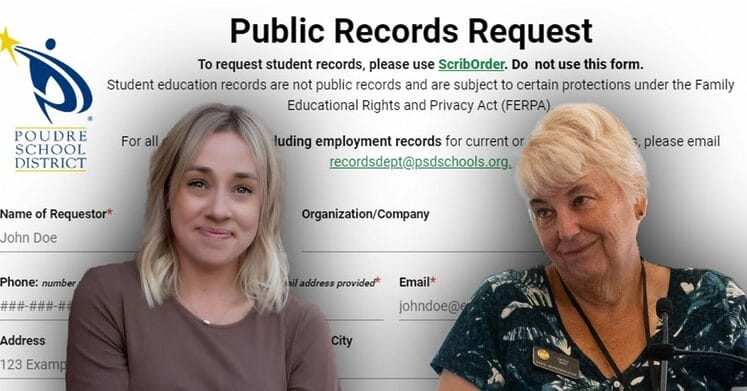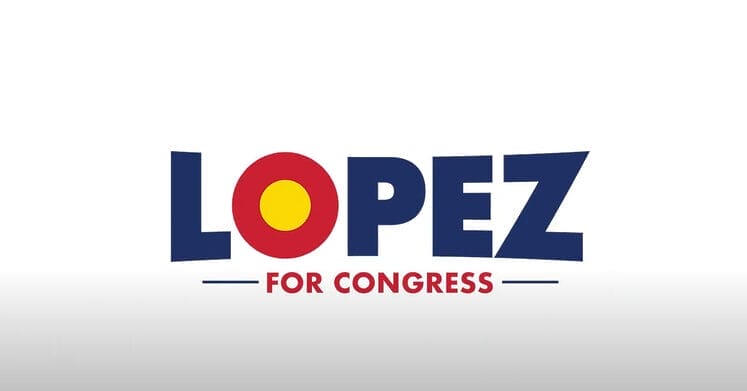
The Colorado legislature currently has a threesome of anti-1st Amendment bills which aim to hide public school officials’ misconduct by prohibiting CORA requests from “vexatious” citizens (HB24-1296), to redefine communications and meetings between legislators as not “public business” (SB24-157), and to develop a curriculum on what the state determines as “misinformation and disinformation” (HB24-084). However, the most controversial insight is that HB-1296 appears to be a retaliation bill drafted by the PSD school board against members of the public who publicized school records involving two major scandals involving abuse of students and an “art club” secretly promoting LGBT lifestyles to students. This article explains how these bad bills are drafted by unaccountable elected officials and introduced by crony legislators willing to protect malfeasance and hinder transparency.
Modifications to the Colorado Open Records Act (CORA)
One of the most contentious hearings thus far in 2024 was over HB24-1296, “Modifications to the Colorado Open Records Act.” The original bill language aimed to give custodians of public records the ability to designate any person who requested records as “vexatious,” only to be remedied by the blackballed person to a legal overturning of this label by a judge, at the individual’s expense. Mainstream journalists are exempt.
Only a few testimonies in the House committee hearing were in favor of the bill. Cherry Creek School District’s (CCSD) spokesperson supported the bill, claiming that CCSD does not have the staff to manage the uptick in CORA requests. Rep. Brandi Bradley (R) asked CCSD if the increased volume of CORA requests in recent years were about curriculum, and parents seeking transparency about political agendas being taught in schools. CCSD responded with an example that a CORA request for “furries” (students who dress in animal costumes) and related terms resulted in a report of 1.1 million records in school communications.
One practical testimony suggested posting all government and school board meetings as public records to alleviate the need for citizens to submit CORA requests in the first place. Existing technology makes this suggestion an easy accommodation for people who cannot attend in person.
Most people at the bill hearing testified against the bill, including left-leaning organizations like Colorado Cross-Disability Coalition (CCDC) and the American Civil Liberties Union (ACLU). The CCDC acknowledged that CORA requests utilized by disability advocates during the Individual Education Plan (IEP) process could be deemed annoying or harassing. The ACLU testified that the bill is unreasonable, with the custodian assuming ill intent or motivations of the requestor, which benefits a rogue custodian and hurts engaged members of the public. The Colorado Freedom of Information Coalition also opposed the bill, citing that the CORA process with a $40 per hour charge for records is already a significant barrier to most citizens for obtaining public records.
One public testimony also noted that case law does not have a precedent for labeling a person as “vexatious,” rather specific records requests have been designated vexatious or harassment. Another person’s testimony implied that this bill does not follow the values of Diversity, Equity, and Inclusion and ignores disenfranchised persons.
A spokesperson for Denver 7 testified that journalists were invited by the bill sponsors to a stakeholder meeting. It became apparent that engaged citizens, who stand to be blocked from public records, were not invited to this stakeholder meeting during bill drafting. The bill sponsors offered ten amendments to try to clean up what is clearly an effort to block transparency in government from the people of Colorado. One of the amendments changed the records custodian to a judge for declaring a person a “vexatious requestor,” which puts the burden of proof on the custodian. However, it is unknown if this change will remain in the final version of the bill as it advances to the House and Senate, or if this was a tactic to get the needed votes in committee.
The bill extends time requirements for the government to respond to CORA requests, which no one opposed, as it is common for government entities to not meet these time requirements. The bill also blocks public access to some government employee’s calendars.
Co-Sponsor Rep. Matt Soper (R – Delta, Mesa counties) said this bill balances transparency with the government’s ability to comply with records requests at taxpayer’s expense. This is a disingenuous statement because requestors pay the inflated bill for the records under CORA. Soper also co-sponsored a bill with a Democrat, HB20-1121 “Retaliation Against an Elected Official,” which first attempted to make vague undefined terms of “threats and harassment” against a legislator a felony crime. (This bill became law under SB21-064) Soper also co-sponsored a bill with Democrats, HB23-1306 “Public Use of Elected Official’s Social Media,” which allows elected officials to block people on social media for broad undefined terms of “bullying, harassment, and intimidation.” Legal experts opine that HB23-1306 violates the 1st Amendment by blocking people from interacting with elected officials in government. All of these bills aim to block public scrutiny of elected officials.
HB-1296 passed the House committee hearing despite overwhelming backlash from the public and organizations, and the bill will advance to a House floor vote.
Is the Misconduct at Poudre School District Driving Colorado Legislation?
The most revealing testimonies at HB-1296 came from parents in Poudre School District (PSD) which is in the district of bill sponsor Rep. Cathy Kipp (D – Larimer County). These parents claim that HB-1296 is retribution for misconduct revealed in PSD through parents’ CORA requests. Erin Lee testified that she submitted 38 CORA requests to PSD to obtain transparency on an “Art Club” which was dishonestly a LGBT indoctrination group for students.
Jeff Aufderheide testified about his son being placed at risk by PSD’s lack of transparency in the 2023 bus driver scandal. PSD school bus driver Tyler Zanella, who was hired with a criminal background, was charged last year with 164 charges of assault of 11 students with disabilities. Parents have accused PSD of attempting to conceal additional bus videos with evidence of more victims after evidence of the first victims emerged. Aufderheide’s testimony connected these scandals to the PSD School Board drafting HB-1296 with Kipp in response:
“In a legislative subcommittee meeting held by the Poudre School District board of directors on August 8th, 2023, the discourse centered around the intention to modify CORA law. It was here that former School Board President Rob Petterson and other directors invoked the term “phishing expeditions” to describe their perceived misuse of CORA. This phrase, also utilized by Representative Kipp to defend HB-1296, signals a unified and troubling stance aimed at curtailing public access to information under the guise of addressing supposed inefficiencies.”
It seems HB-1296 is neither the product of citizen demand for legislation nor the outcome of the legal stakeholder process under the Administrative Procedures Act, but rather drafted in an August 2023 PSD school board subcommittee meeting behind closed doors. PSD board member Rob Petterson made these statements (obtained from a CORA request): “Based on conversations we’ve had with our legislators, there seems to be more of an appetite to make some amendments to CORA to address some of the… we will call them phishing expeditions or that are happening…” and “I don’t see any good way to define what phishing is…It’s sort of one of those things that we feel or I feel I see it, like I know when I see it, but to make a law that phishing is going to be hard.” PSD board member Kristen Draper made the following statements: “We could essentially leave the press out of it…immediate information for their stories or whatever” and “Somehow what I want to get across is we need to stop phishing attempts. This is basically null and void for the press” and “I don’t want to make it seem like we are hiding from the Sunshine Laws, we’re just trying to figure out how to stop these phishing attempts.”
These PSD school board members then had several subsequent meetings with Kipp in November and December before the legislative session in January 2024. It is noteworthy that bill sponsor Kipp uses the same language of these PSD board members including “phishing expeditions” in defense of HB1296.
Another long-term parent in PSD said these recent scandals are actually a part of a longer history of PSD school board member secrecy and Larimer County legislators drafting laws to protect the PSD school board’s malfeasance, going back to 2011 when Cathy Kipp was on the PSD school board. In 2020, Superintendent Sandra Smyser abruptly left PSD in what was called “a mutually decided upon early retirement.” PSD paid Smyser $560K for this early retirement. The settlement was sealed as confidential and the taxpayers of Larimer County were left with the bill, while board members refused to explain the matter to the public and cited a vague need for new leadership.
The Coloradoan reported one hint that the matter involved communication and transparency:
“When the traits of transparent and communicative came up, board member Carolyn Reed recalled a time she almost had to file an open records request to get a document she said Smyser was refusing to give her, claiming it was a ‘disruptive’ request. ‘If you’re going to take 10 hours of staff time to put something together for me, that’s disruptive,’ said Reed, making the case that existing documents should be provided upon board request. ‘But if I’m asking you for a document that you don’t want me to have because it embarrasses you, that’s not disruptive,’ she said, ‘it’s transparency.’”
To add insult to injury of public trust, a ruling concluded that PSD school board violated the Sunshine Law when hiring the new PSD superintendent by voting in Brian Kingsley at an executive session. In response, Rep. Andrew Boesenecker (D – Larimer County) protected PSD school board in future closed-door decisions by sponsoring HB22-1110, “Concerning the circumstances under which a board of education may meet in executive session when selecting a chief executive officer.” This 2022 law provides an exception to Colorado’s Sunshine Law in hiring superintendents, and allows school boards to interview and prioritize finalists in executive session according to Colorado Freedom of Information Coalition. The media spin in “School superintendent search secrecy bill backed by PSD board signed into Colorado law” implied that the PSD school board supported the bill, but parents claim that PSD school board drafted the bill for Boesenecker.
This history in PSD using statewide legislation to cover misconduct might motivate people in Colorado, even people who are not constituents of Larimer County, to become more “vexatious” at local board meetings and legislator town halls.
Attorney General Duties to Prevent Mis- & Dis-information
SB24-84 is another anti-1st Amendment bill introduced in Colorado: “to encourage respectful engagement and discourse,” “to develop curriculum to facilitate productive and honest conversations regarding statewide and national issues,” and “to collaborate with organizations across the state to develop and update the curriculum.” Free speech advocates have nicknamed this ‘Orwell’s 1984 bill’ to establish the Ministry of Truth.
Colorado Open Meetings Law for the General Assembly
SB24-157 was signed into law and excludes the emails and meetings of Colorado legislators from public business under Colorado Open Meetings Law. As reported by Colorado Politics:
“First Amendment attorney Steve Zansberg, who is president of the Colorado Freedom of Information Coalition, called the governor’s decision to sign the bill disappointing. ‘It is profoundly disappointing that the leadership of both houses, and the Governor, have chosen to effectively exempt one branch of government from our state’s public transparency law,’ Zansberg wrote in an email. ‘It is all the more so, given that our organization’s input was completely ignored, and that they did so during ‘National Sunshine Week’ of 2024.’”
If there is any silver lining in these bills, they have unified people from both liberal and conservative organizations against the Colorado General Assembly with a Democratic Super Majority which does not respect the 1st Amendment or transparency in government.









Responses